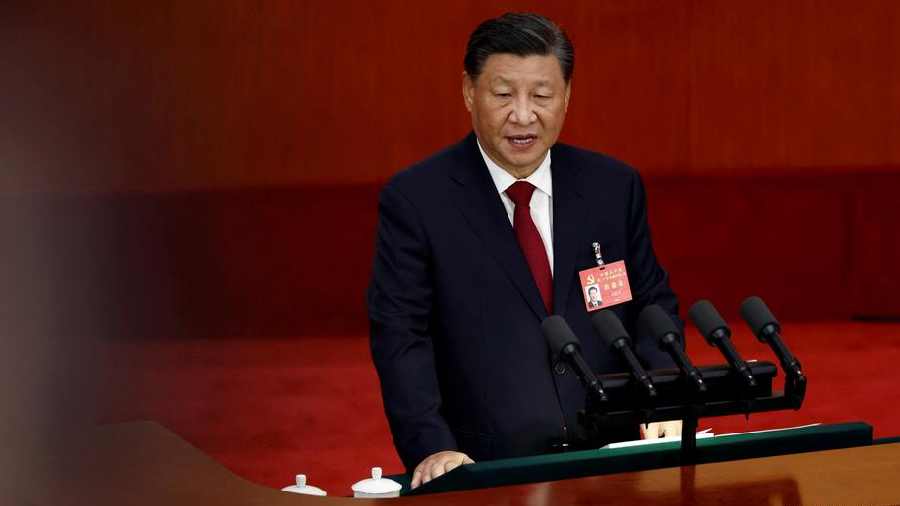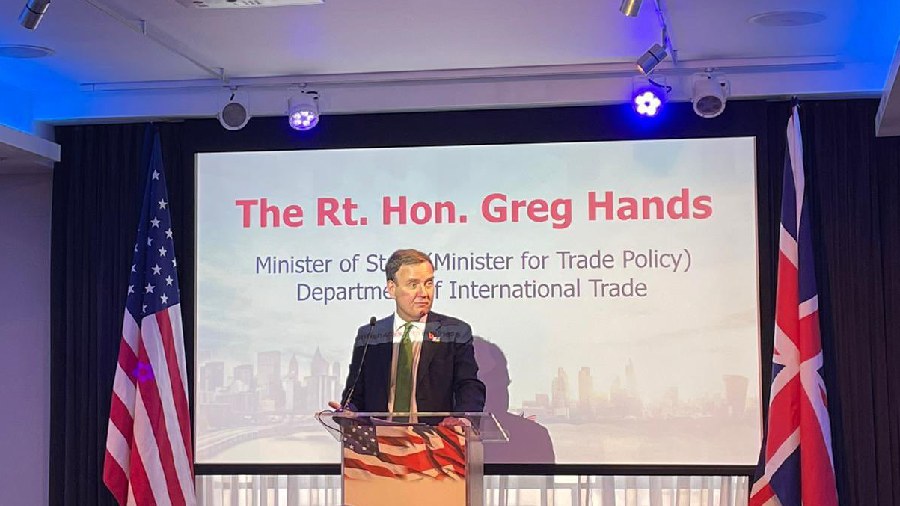For decades, China’s business class had an unspoken contract with the Communist Party: Let us make money and we’ll turn a blind eye to how you use your power.
Like most Chinese people, they bought into the party’s argument that its one-party rule provides more efficient governance.
Now, the tacit agreement that entrepreneurs had come to count on is dissolving in front of their eyes. China’s leader, Xi Jinping, used an important Communist Party congress last month to establish near-absolute power and make it clear that security would trump the economy as the nation’s priority.
“My last lingering hope was dashed,” said the founder of an asset management firm in the southern city of Shenzhen who contacted me hours after the congress ended.
“Totally finished, completely lost control and absolutely terrifying,” a tech entrepreneur in Beijing texted me after seeing the party’s new leadership lineup, which is packed with Xi’s acolytes.
Like many Chinese, they fully expected Xi to secure a third term, breaking a norm followed since the 1980s. Still, they held onto the hope that his dominance would be tempered by other power factions within the party. Xi’s sweeping victory, by pushing out perceived moderates in favour of loyalists, made it clear that it would be a one-man rule system that could last for decades.
China’s last leader as powerful as Xi, 69, was Mao Zedong, who led the country into the Great Famine and the Cultural Revolution that resulted in tens of millions of deaths, social chaos and economic destruction.
The party, under Xi, has taken control of nearly every aspect of society, costing Chinese people agency over their destinies. Members of the business class, especially those working at the top of the technology sector who operated with relatively few restrictions until a few years ago, have taken it especially hard.
These tech entrepreneurs mostly grew up “in the age of ‘economism,’ when money making, economic principles and economic rationality trumped everything else,” said Minxin Pei, professor of government at Claremont McKenna College in California. “Now they see the regime puts politics in command,” he said. “For them, this is incomprehensible.”
In the past decade, Xi’s economic thinking can be summed up like this: bigger roles for the state, and smaller roles for the market.
Xi left the private sector largely alone in his first term, when he was busy consolidating his power within the party and the military. In his second term, which began in 2017, Xi kept private enterprises on a much tighter leash. The government cracked down on businesses, sending some of the country’s most successful businesspeople into early retirement or self-imposed exile. China’s harsh “zero-Covid” policy has left the economy in the worst shape in decades.
To Chinese in the business elite, who grew accustomed to the privilege and attention their success brought, the Big Boss, as many of them refer to Xi, doesn’t care about the economy or people like them. In his opening address at the party congress, Xi mentioned “security” 52 times, “Marxism” 15 times and “markets” three times.
“There’s no question about the shift both in political rhetoric and in action and in also the appointment of the team,” said Professor Pei, who said he believes that Xi’s leadership lineup shows that he does not value expertise in managing a market-oriented economy. “He values people who can implement his policy regardless of the economic consequences.”
That makes the business community anxious. Under Xi, the ability of China’s bureaucracy to dictate to the public has increased while its ability to govern has decreased, Guoguang Wu, an adviser to former Premier Zhao Ziyang in the 1980s, told me on my Chinese language podcast.
“When the ability to govern decreases, even in the absence of any particular policy from the top, the ineptitude, brutality, and ignorance of lower-level officials will brew disasters for the common people they rule over,” said Wu, who is a senior research scholar at the Stanford Center on China’s Economy and Institutions.
Many business people have lost a lot of money under “zero-Covid,” which has shuttered cities and locked millions of people in their homes for weeks at a time as the government seeks to eliminate the coronavirus.
“Under the leadership of this dictator, our great country is falling into an abyss,” said a hardware tech executive in Shenzhen. “But you can’t do anything about it. It pains and depresses me.”
Despite many conversations over the years, we never talked about politics. I was surprised when he called after the party congress to talk about his “political depression.”
He said he used to be very nationalistic, believing that the Chinese were among the smartest and the most hardworking people in the world. Now, he and many of his friends spend most of their time hiking, golfing and drinking. “We’re too depressed to work,” he said.
Until a year ago, his startup was doing so well that he was planning to take it public. Then he lost a big chunk of his revenues and his new hires sat idly with nothing to do when cities were locked down under the “zero-Covid” rules. He said now he has no choice but to lay off more than 100 people, sell his business and move his family to North America.
“Since the dark night has descended,” he said, “I’ll deal with it the dark night way.”
(New York Times News Service)












